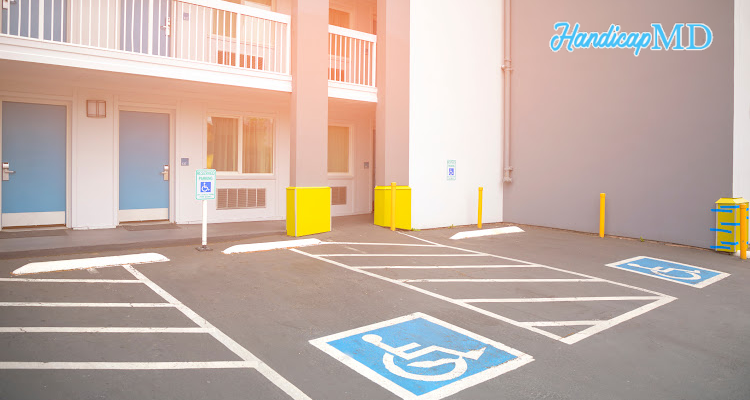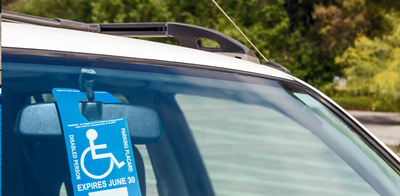
Handicap Placard vs. Handicap License Plates: Which is Right for You in Pennsylvania?
Introduction
Navigating through PA's regulations for handicapped parking can be confusing, but understanding the difference between permits and license plates is crucial. Both options offer certain advantages, yet the right choice depends on your unique situation and preferences. In this comprehensive guide, we'll explore the key differences, benefits, application processes, and regulations for both handicap placards and license plates in Pennsylvania.
Placard vs. License Plates: Which is Right for You in Pennsylvania?
When it comes to handicapped parking, PA provides two primary options: disability permits and disability license plates. Let's delve into each of these options to help you make an informed decision.
Benefits of Placards
Disability passes offer several advantages for individuals with disabilities and their caregivers:
- Convenience: Handicap permits are portable and can be used in any vehicle you're traveling in, whether you're the driver or a passenger.
- Flexibility: Permits can be easily transferred between different vehicles, making them suitable for individuals who use multiple vehicles or travel with others.
- Temporary Use: If your need for accessible parking is temporary, a permit can be a more suitable choice than getting specialized license plates.
Benefits of License Plates
Disability license plates also come with their own set of benefits:
- Permanence: License plates are fixed to a specific vehicle, which can be advantageous if you mainly use one vehicle.
- Reserved Parking Spaces: License plates often grant access to specially designated parking spots, ensuring availability when you arrive.
- Customization: License plates allow for a certain degree of personalization, which can add a touch of individuality to your vehicle.
Applying for a Placard
The process of obtaining a placard in Pennsylvania involves these steps:
- Eligibility Check: Ensure you meet the state's eligibility criteria for parking privileges.
- Application Form: Complete the MV-145A application form, available on the Pennsylvania Department of Transportation (PennDOT) website.
- Medical Certification: Have a qualified medical professional certify your disability, using the appropriate section of the application form.
- Submission: Submit the completed form either in person at a local PennDOT office or by mail.
Applying for License Plates
To apply for disability license plates, follow these steps:
- Eligibility Verification: Ensure you qualify for designated parking benefits according to PA's regulations.
- Application Submission: Fill out Form MV-145A to request personalized or standard license plates.
- Medical Certification: Have a licensed medical practitioner validate your eligibility by completing the appropriate section of the application form.
- Vehicle Registration: If you're applying for personalized plates, complete the vehicle registration process as well.
Regulations and Considerations
Both disability passes and license plates are subject to specific regulations:
- Expiration: Disability permits are valid for up to five years, while license plates must be renewed annually with vehicle registration.
- Misuse Penalties: Misusing a permit or license plate can lead to fines, as they are reserved for individuals with genuine disabilities.
- Transferability: While permits are transferable between vehicles, license plates are tied to a single vehicle.
Frequently Asked Questions (FAQs):
Q: Can I use my pass or license plate in other states?
A: Yes, most states recognize and honor out-of-state permits and license plates. However, regulations may vary, so it's advisable to check local rules before parking.
Q: Can I lend my pass or license plate to a friend or family member?
A: No, both permits and license plates are issued to specific individuals and should not be lent to others. Doing so can result in penalties.
Q: How do I renew my pass or license plate?
A: Permits can be renewed by submitting a new application, while license plate renewal is done as part of your vehicle's annual registration.
Q: Can I apply for both a pass and license plate?
A: Yes, you can apply for both, but you'll need to provide separate medical certifications for each application.
Q: What if my pass or license plate is lost or stolen?
A: You can request a replacement by completing the appropriate form and submitting it to PennDOT.
Q: Are there parking privileges for caregivers of individuals with disabilities?
A: Yes, caregivers may use a vehicle with a handicap placard or license plate to transport the person with a disability and park in designated accessible spaces.
Conclusion
Choosing between a handicap placard and handicap license plates in Pennsylvania depends on your needs, preferences, and vehicle usage. Disability passes offer flexibility and portability, while license plates provide permanence and the convenience of reserved parking. Be sure to review the regulations, understand the application process, and consider your personal circumstances before making a decision.
.png)






